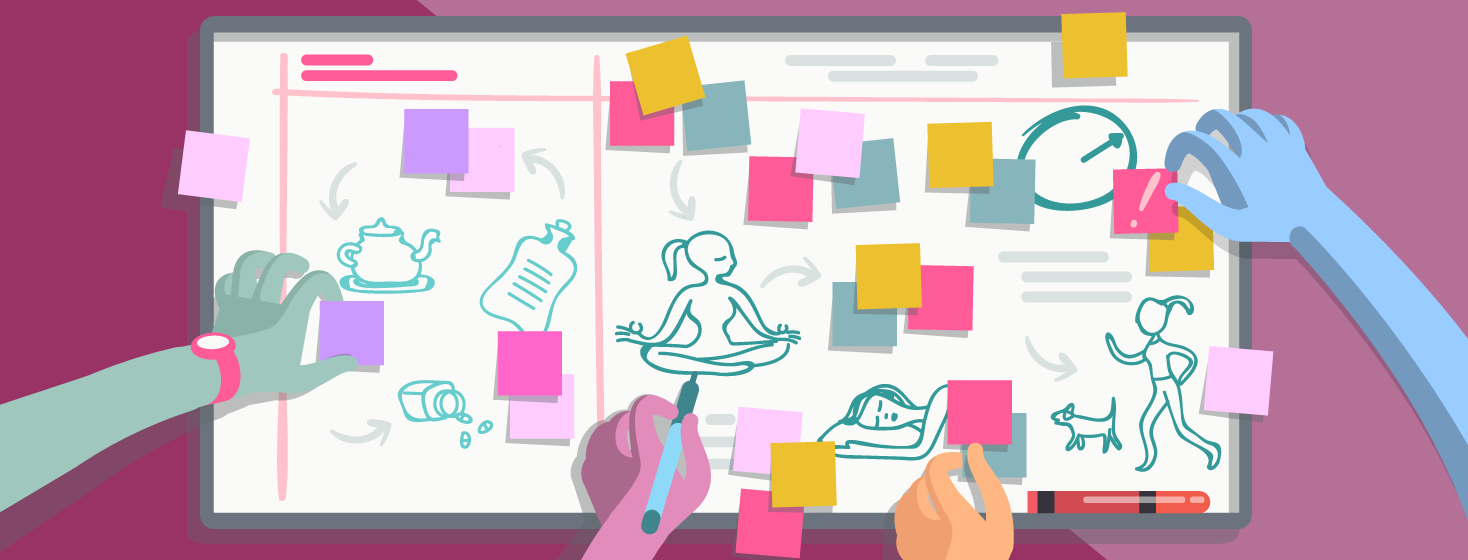Surviving the Workday with Endometriosis
I remember the days - pre-laparoscopy - at work with debilitating pain from endometriosis. The cramps made it difficult to even walk to a coworker's office just down the hall. I was nauseous and was constantly being told that I didn't look good.
"You look pale, are you okay?", my coworkers would ask. "Yup, I'm fine, thanks", I'd answer with a painful smile. Talking about your period, let alone the fact that the lining of your uterus has gone rogue, isn't the most appealing topic of conversation in the workplace. But the reality is, the pain of endometriosis is really hard to "work through".
I know I'm not alone in this experience. So, what's the best way to manage endometriosis in the workplace? I definitively don't have all the answers, but I'll share what worked for me and hope that you'll do the same in the comments below.
For me, my ability to manage rested on the following three principles:
1. Be productive
If you're dealing with a chronic illness or condition, the level of uncertainty you have over your "good days" can be a shot in the dark at best. And when the good days are gone, the struggle is REAL!
So, I found it super important to be productive on the days I was feeling well. For me keeping a list of to-do's and prioritizing it daily is a system that works best for me. It forces me to get the most important tasks done first.
Why am I talking about list-making in the context of endometriosis? Because on the days that the pain strikes, you either are working at half speed or not able to work at all. So, it’s that much more important to be productive and meet your deadlines on the days you do feel well.
Being on top of your projects can do two things: First, it can enable you to rest much easier knowing you can afford to have a slightly slower day because you're on top of your work. And if you do have to take the day off it feels less overwhelming when you're only having to catch up on the time you were out of the office versus the time you were out and the days you weren't fully productive. Secondly, if your boss sees you as a hard worker, you'll likely gain the respect of them and greater compassion if you do need some time off.
2. Be proactive
If you know when your period will be arriving - or something close to it - be proactive with self care. Stack the deck in your favor so you're minimizing stress and inflammation on your body.
The days leading up to your period are not the time to pull an all-nighter or increase your alcohol intake. This is the time to prioritize sleep, practice some stress management (chillax on the yoga mat, enjoy an outdoor walk, or pamper yourself with a soothing bath), and fuel your body with nourishing foods. You'll never regret taking good care of your body. These proactive steps may help to cut the edge when your period does arrive and sometimes that's all you need to get through the day.
3. Be honest
If you truly can't make it through the workday, it's important to be honest first with yourself. The body is under a lot of stress with endometriosis and needs your TLC. If pain, nausea, bleeding, whatever are too much, it might be time to cash in a sick day.
If that happens be honest with your boss. Whether you chose to tell them the specific reason - that's a personal decision and one that might even be valuable to explore your HR rights and benefits for - but in either case, you're not well and not able to work. Hopefully, because you're a highly-productive employee (see point 1 :-) ), the boss will be understanding.
What's your experience?
Again, these are just a few tips that I found helpful and effective but everyone's experience is different - not only with endometriosis, but also in the workplace. So I want to hear your experience and tips. Please share below so we can learn from you too!

Join the conversation